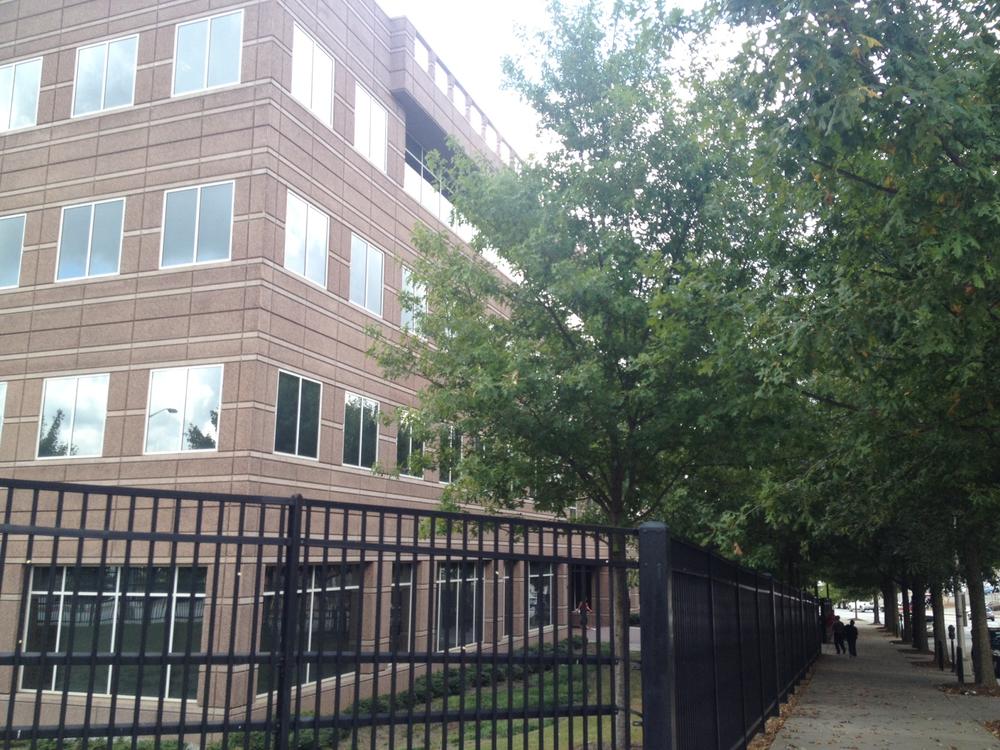
Section Branding
Header Content
Lawyers Say Quick Deportation Proceedings Of Central American Minors Risk Due Process
Primary Content

This is part two of a two-part series on legal challenges unaccompanied minors in Georgia face.
On a recent Saturday morning, a couple of dozen teens and their families attend a “Know Your Rights” session in Atlanta.
Piles of crayons and coloring books dot the floors, where younger kids play.
Jessica Daman, a lawyer with the Latin American Association in Atlanta, stands at the front of the room, going over the basics of immigration court. She tells the guests that it’s important to show up on time, to wear nice clothing and address the judge in a formal manner.
“This day is to try to reach out to all the unaccompanied minor children in Georgia and Alabama,” Daman said. She said her aim is to give free legal consultation and information about children’s rights and responsibilities while they go through the deportation process.
In the deportation process, data from the Transactional Records Access Clearinghouse show more than half of unaccompanied minors show up at court alone. But lawyers in Georgia raise another issue: the minors’ cases have been fast-tracked in immigration court since the summer.
“I’ve seen continuances for as little as nine days,” Daman said. “Nine days is not enough time to go to have a legal consultation with an attorney, sign a retainer agreement, start a case. There’s no way we can do that.”
The speed of deportation proceedings is unusual, says Sarah Owings, second vice chair of the Georgia-Alabama chapter of the American Immigration Lawyers Association.
She says asylum and immigration cases where defendants have to show up to court usually can take up to several years.
“I don’t know if due process is really being respected”.
Owings says it takes time for lawyers to get to know their clients’ cases, especially with minors who’ve faced trauma and violence back home -- minors like 17-year old William, who asked to be identified by first name only.
William is applying for special juvenile immigrant status, which would allow him to stay in the United States. He said in his home in Guatemala, he was shot in the stomach while being robbed by gangs. His dad had abandoned him and his siblings.
The United States Department of Justice’s Executive Office for Immigration Review confirmed they are prioritizing cases because of the influx of minors crossing the border.
“EOIR’s response to the evolving situation on the southern border will continue to adapt appropriately, and to concentrate on fair and expeditious hearings, with due process to all respondents who come before the court,” the office said in an e-mailed statement.
Back at the "Know Your Rights" session, lawyers like Jessica Daman say they’re trying to ensure that due process is happening.
“Without the help and guidance of an attorney, a child, particularly an immigrant child who doesn’t speak English and is new to the United States, almost certainly can’t manage to work through the system,” Daman said. And lawyers say the speed of the cases can make working through the system even harder.
For now, she said she and other lawyers are trying to create a “day-of” attorney program at the immigration court in downtown Atlanta, for minors who show up to court by themselves.
This project was reported with assistance from the Institute for Justice & Journalism's "Immigration in the Heartland" fellowship.
Tags: deportation of minors, immigration, unaccompanied minors, unaccompanied minor immigrants, central american minors
